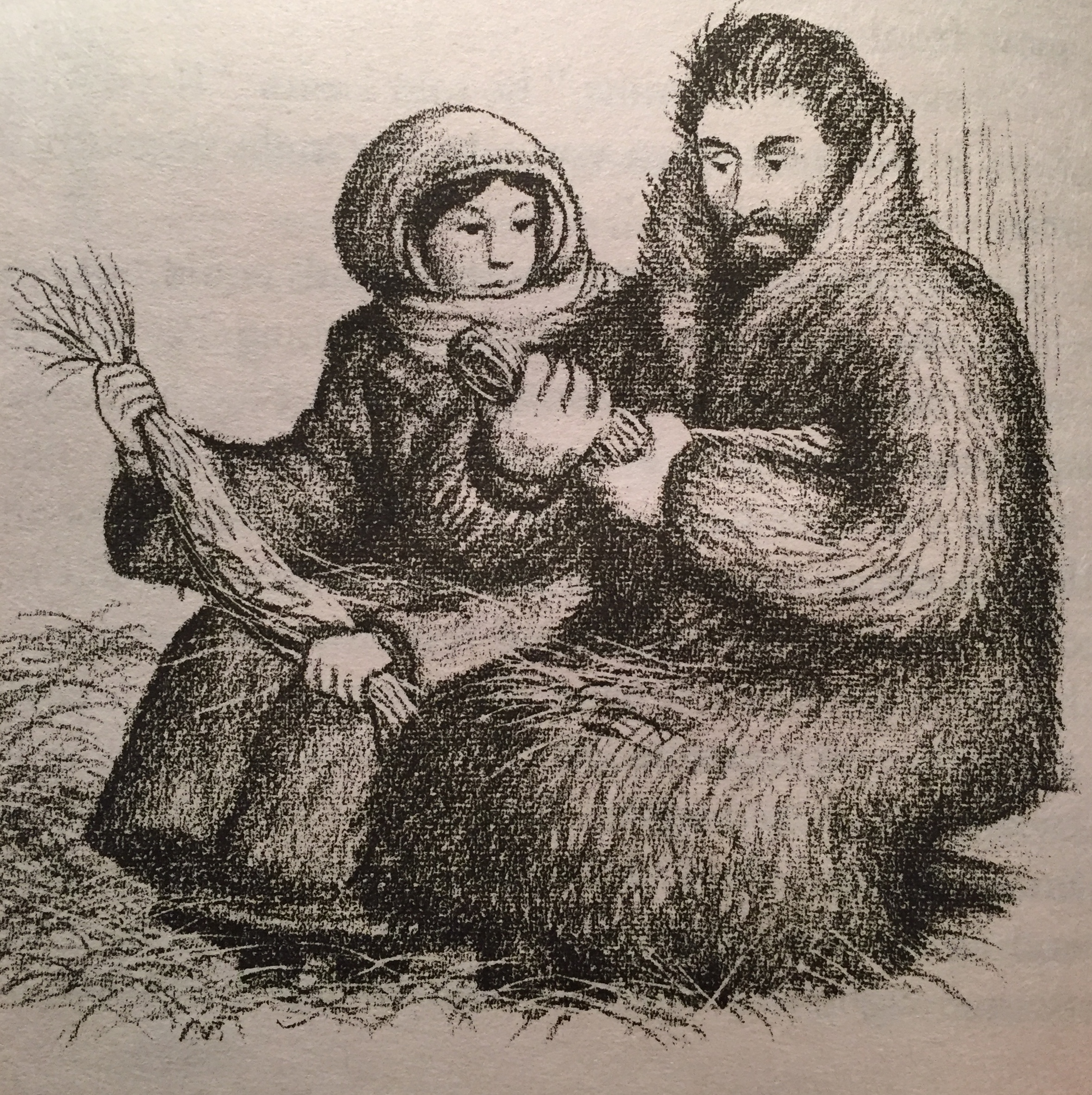I took a different approach in my reading life this year. Instead of setting a goal to read a certain number of books (I read 37 – of course I kept track), I created some categories in hopes of becoming a more well-rounded reader. I think it worked. I feel rounder.
1 book by Elizabeth Goudge — Genetian Hill by E. Goudge
I read a Goudge book every February. Her writing is full of English cottages and rose gardens and lovely language. I seem to need that in February. During the year, I look for copies at used book sales and shops. The musty smell and worn pages enhance the overall experience.
1 book by Eugene Peterson — Leap Over a Wall by E. Peterson
This book on the life of David and his relationships with various people was a great companion while I read through the Biblical record of David in 1&2 Samuel. Peterson communicates deep theology without being stuffy.
1 book on the Fruit of the Spirit: Joy — Aggressively Happy by Joy Marie Clarkson
Clarkson is delightful, funny and tells good stories. She’s also a realist: “Cultivating happiness takes grit, determination and a good sense of humor. It’s a lot of work.” One other book in this category: Choose Joy by Kay Warren.
1 book on prayer — Praying Like Monks, Living Like Fools by Tyler Staton
Staton is the director of the 24/7 Prayer Movement in the USA. He can write about the topic because the man is a pray-er. I needed his passionate words to give my prayer life a jolt.
1 old Christian classic — The Pilgrim’s Progress by John Bunyan (written in 1678) and Hinds’ Feet on High Places by Hannah Hurnard (written in 1955). I’ve read them both before, but I was given beautiful gift copies, so I read them again. And I’ll read them in the future. Classics.
1 English classic — Dr. Jekyll and Mr. Hyde by Robert Louis Stevenson
I’m a little embarrassed to admit that I haven’t read this iconic story until now. I picked it up because it was short (only 100 pages) and it fit my category. It’s kind of creepy and kind of cool and now I know what references to “Jekyll and Hyde” really mean.
1 book of poetry — The Word in the Wilderness by Malcolm Guite
Poetry is hard. Malcolm is here to help. This book contains a poem a day for the season of Lent and Easter. I read the poem each day, then read Guite’s explanation of the poem, then read the poem again and said, “Ahhhhhh. I get it now.” Poetry is wonderful.
1 book on nature — The Heart of John Muir’s World by Millie Stanley
Muir was the “Father of National Parks” and grew up in the mid 1800’s a few miles from where I live. He wrote, “Oh! that glorious Wisconsin wilderness!” I need to be reminded to open my eyes and take in all the natural glory right in my own backyard.
1 biography/memoir — All My Knotted Up Life: A Memoir by Beth Moore
Over the years I’ve done several Beth Moore Bible studies. Sometimes I love her, and sometimes I roll my eyes a little bit. Shame on me. You never know what a person has gone through in life. Her transparency and conversational style had me gobbling up this book in two days. Then I listened to her read the audio version. I also read the memoir Secret Thoughts of an Unlikely Convert by Rosaria Butterfield.
1 Jane Austen book — Mansfield Park by Jane Austen
I’ve read “Pride and Prejudice” several times, but now I’m making my way through her other books, one by one. Three down, three to go.
1 book on writing — Write Tight by William Brohaugh
I’m a sucker for books on the craft of writing. I’ve read so many they all are starting to sound the same. Basically, “sit down and write.” All right already.
1 Montana historical novel — The Whistling Season by Ivan Doig
My great grandparents homesteaded in Montana in the late 1800s and I’ve dreamed of living in Big Sky country ever since I was a little girl. I’ve read this title before, but PB and I listened to the audio book on our way to Montana in June. Pure delight! I also read Dancing at the Rascal Fair by the same author.
1 book on the church — Positively Irritating: Embracing a Post Christian World to Form a More Faithful and Innovative Church by Jon Ritner
This was my #1 book of 2023. It shook me up (in a good way) and caused me to think hard about church and culture in new, scary, and exciting ways. Ritner asserts that the church needs to pivot from being a “restaurant” (expecting people to come in and be served) to becoming a “food truck” (taking the gospel out to where people are). I can’t stop thinking about it.
Honorable Mention:
The Sound of Life’s Unspeakable Beauty by Martin Schleske
Secrets Of the Secret Place by Bob Sorge
On Getting Out of Bed by Alan Noble
David Rise by Mark Buchanan
May God bless your reading of books in 2024!















